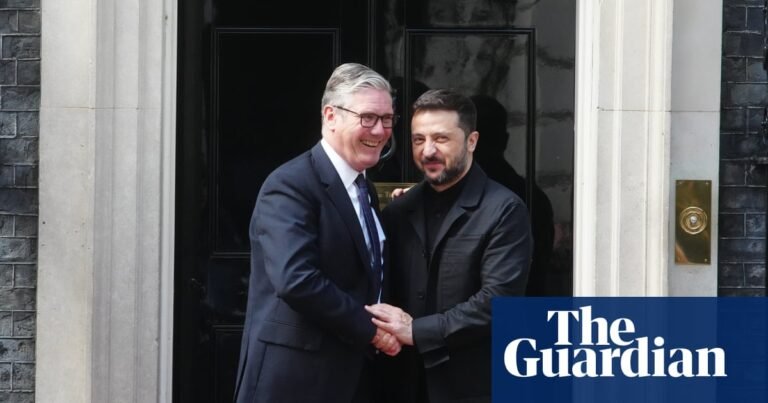Britain will commit to spending 5% of its GDP on defence by 2035 after weeks of diplomatic pressure and intense negotiations with allies.
The decision came as Keir Starmer, the prime minister, prepared to join Nato leaders at a summit dominated by global conflict and expectations of European military self-reliance.
The UK’s pledge aligns with Nato’s new spending targets – but at a slower pace than key allies including Poland. Britain pushed for and secured a later date.
Military chiefs are expected to welcome the announcement but officials acknowledged the 5% increase would combine traditional defence spending of 3.5% with a broader “whole of society” category worth 1.5% of GDP.
Some defence officials have privately said the headline figure risks conflating military capability with investment already budgeted for by the Treasury. They pointed out that the target would be hit only after the next election but one.
The chancellor, Rachel Reeves, had faced weeks of lobbying from pro-defence Labour MPs and military figures for a higher spending ceiling amid warnings that Britain risked falling behind its Nato peers.
No 10 is presenting the commitment as a signal of seriousness before a meeting involving Nato leaders and the US president, Donald Trump, in The Hague on Tuesday. However, some MPs are concerned that the timing of the announcement gives the UK less leverage at the summit.
The pledge, which comes before the publication on Tuesday of the government’s national security strategy, will formally split the 5% pledge into 3.5% for core defence and 1.5% for wider resilience, covering infrastructure, energy security, cyber defences and economic shock absorption.
The strategy will include a long-awaited review of UK-China relations, which was part of Labour’s manifesto and was originally planned to be released in January.
The government has promised to spend 2.5% of the country’s economic output on defence by 2027-28, with a further ambition to spend 3% at some point during the next parliament.
Nato’s secretary general, Mark Rutte, has called on member states to commit this week to the target of spending 5% of GDP when Trump is rewriting his country’s role in global security.
The US president, who has in the past threatened to walk away from Nato unless allies step up their contributions, has also urged them to reach 5%. The US spends 3.4% of GDP on defence.
UK officials say the 5% ambition reflects the reality of modern threats – from supply chains and food prices to digital sabotage and economic coercion.
However, the UK’s 2035 target is three years behind the 2032 deadline originally pushed by Rutte amid difficult negotiations and resistance from the Treasury.
The prime minister will travel to The Hague “against a backdrop of global volatility”, No 10 said, citing Israeli and US strikes on Iran, the continued war in Ukraine and Russia’s intensifying aggression.
While rising tensions in the Middle East may dominate the summit, Starmer is expected to use the occasion to argue that a “just and lasting peace in Ukraine is only possible if we continue to show strength” and that there will be “no letup” in British support.
While officials are framing the 5% commitment as future-facing and economy-linked, it is unclear whether the package will meet Washington’s higher bar and harder definition of military readiness.
Some of the UK’s allies have moved notably faster and more decisively. Germany, under chancellor Friedrich Merz, has eased constitutional debt limits to fund a €500bn (£425bn) rearmament programme and has pledged to reach 3.5% by 2029.
Poland and the Baltics are already spending 4% to 5% of GDP. Spain has opted out entirely, striking a deal with Nato to keep its defence budget at just above 2%, arguing that it could meet its defence commitments with lower investment than allies.
The UK currently spends about 2.3% of GDP on defence. A formal Nato review of progress toward the 5% goal is expected in 2029, by which point Starmer and Reeves will face renewed scrutiny over whether rhetoric has been matched by delivery.
A No 10 spokesperson said the pledge marked a “generational increase in defence and security spending”, adding that it would “have a considerable impact on the strength of our alliance”, given the UK’s position as the second-largest economy in Europe and third-largest in Nato.
Starmer said: “This is an opportunity to deepen our commitment to Nato and drive greater investment in the nation’s wider security and resilience.
“After all, economic security is national security, and through this strategy we will bring the whole of society with us.”


